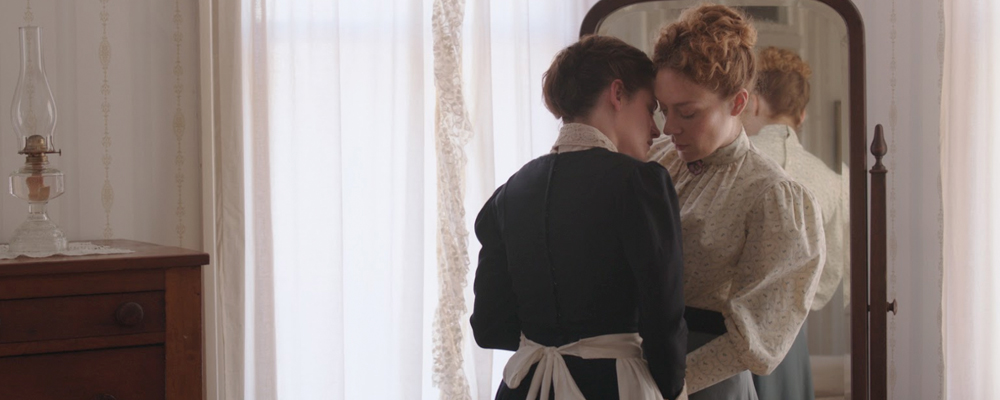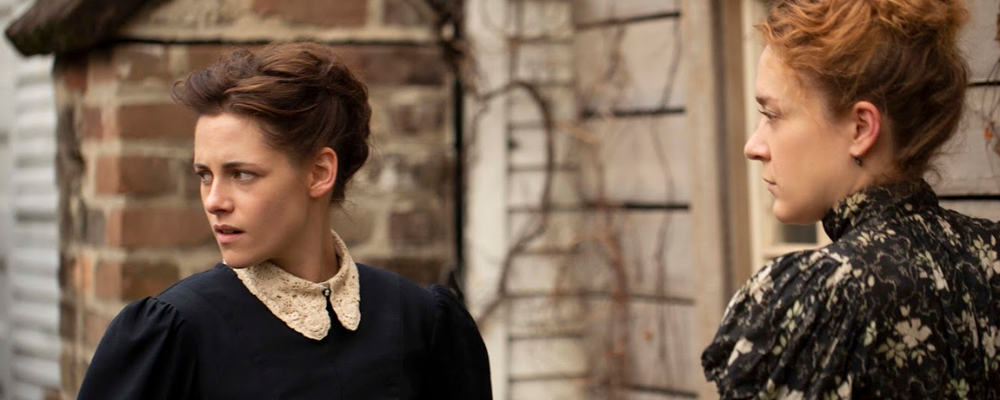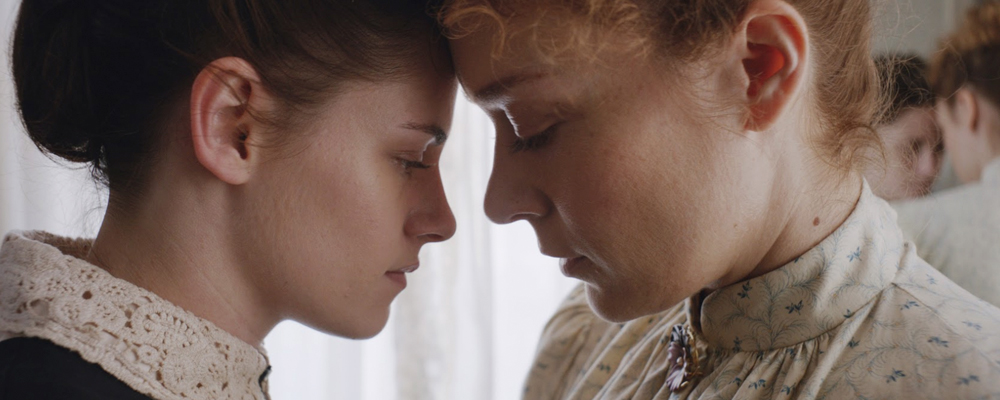Chloë Sevigny and Kristen Stewart Hack at the Patriarchy in Slow Burning Portrait of a Killer ‘Lizzie’
Sandra Miska
Few female criminals have achieved the notoriety of Lizzie Borden, the New England woman who was accused of hacking to death both her father and stepmother one fateful morning in in 1892. In the slow-burning crime drama “Lizzie,” star and co-producer Chloë Sevigny attempts to explore the circumstances that led the woman to “snap,” and the result is a fascinating psychological thriller. The film also fleshes out Bridget Sullivan (Kristen Stewart), the enigmatic Irish maid who allegedly witnessed her mistress commit these crimes that shock people even 126 years later.
In this slow-burning tale, Lizzie is introduced as a 32-year-old single woman, definitely an “old maid” by the standards of the day, living with her controlling father, Andrew (Jamey Sheridan) and his second wife, Abby (Fiona Shaw). She also has a sister, Emma (Kim Dickens), also unmarried, who is content making herself scarce most of the time. The more headstrong Lizzie, however, bucks at societal conventions, boldly defying her father by engaging in activities such as going to the theater solo. Her father constantly belittles her, and to make matters worse, he actively works to make her life miserable even after his death by appointing her spendthrift uncle, John Morse (Denis O’Hare), the guardian of her inheritance.
Under these stifling conditions, it’s no wonder Lizzie forms a kinship with the family’s new maid, Bridget, who arrives at the Borden house with no agenda other than to keep her head down and do her chores. However, it’s not long before Andrew begins to pay unwanted visits to her room at night. In a show of sisterhood, Lizzie finds a way to punish her father. Although Bridget initially shows reluctance about breaking social protocol, she soon learns to emphasize with her mistress, who teaches her how to read. Their relationship becomes intimate, but the domestic situation takes a turn after Andrew gets wind of what’s happening.
Sevigny, who commissioned the script for “Lizzie” herself, brings out the humanity of this woman who as been so sensationalized. Lizzie’s story here is especially resonate in the #MeToo era. Sure, she’s not marching in the streets, and one can make the argument that she only did what she did to secure her inheritance, but here the case is made that repression and biased laws led her to take action. The constant threat of sexual abuse also plays a role. Not only is Bridget raped, but Lizzie is also assaulted by her malevolent uncle.
As for Stewart, she gives an understated performance here. While Lizzie represents the corseted, restricted upper class woman, Bridget stands in for all the oppressed dometic works forced to submit to abuses, with destitution being the only alternative.
“Lizzie” opens Sept. 14 in select theaters.



